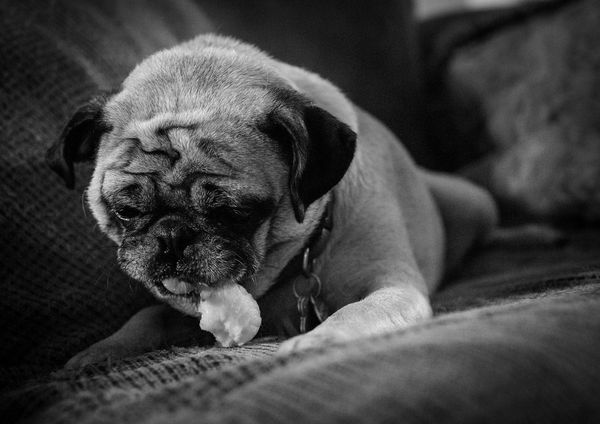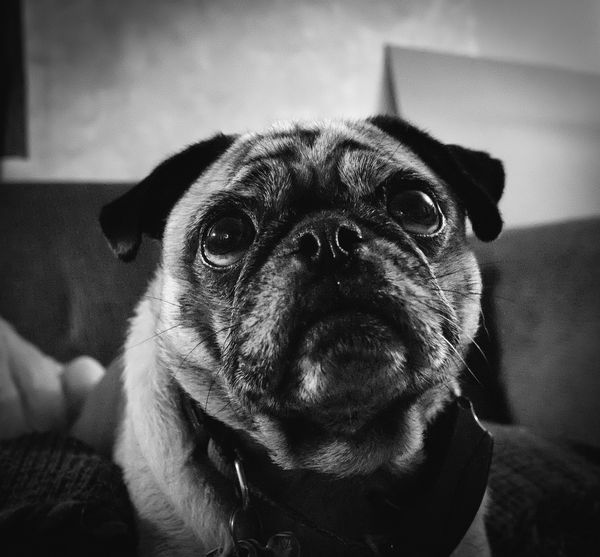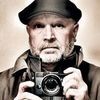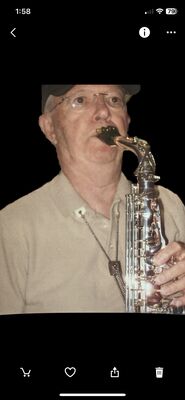Check out Landscape Photography section of our forum.
Lens suggestions and tips/tricks for night time, outdoor events!
Oct 23, 2013 06:58:10 #
brianae515 wrote:
I have a Canon 60D and an 18-135mm lens. I also bo... (show quote)
More information is required. What is the aperture of the lens you are using. If is like most zoom lenses, probably, f 4 to f 6. That is slow. A zoom that is f 2.8 at any focal length is better, but more expensive. You also do not say what distance your subject is from you. This makes a big difference. A fast prime lens would help f 1.8. A good quality flash is required. What ISO setting were you using.
You have to understand more about light. Read some articles on artificial light. There are many ways around the problem, but it takes understanding and practice first.
Oct 23, 2013 07:29:34 #
ocbeyer wrote:
We need to stop being afraid of grain. It was not such a big deal in film days, often thought to add an artistic element to the picture.
Nice shot.
Nice shot.
I completely agree.
I never use Noise Reduction...on anything.
Here is a shot at ISO 25,600 and ISO 10,000 and I'm fine with the grain:
ISO 25,600

ISO 10,000

Oct 23, 2013 07:36:38 #
I've got a 60d too and do get some noise when I use high ISO. My first canon flashgun was bought used and it worked well. I have the canon 430 exll now and it serves me we'll. but as other posters have mentioned, you need a faster lens to let in more ambient light. I've also played round with using a flashlight on the subject just to get the camera to focus, but that would be weird in a ceremony with a large group. Does your ext flash have a focus assist beam? That's why you need.
Oct 23, 2013 07:39:46 #
brianae515 wrote:
I have a Canon 60D and an 18-135mm lens. I also bo... (show quote)
Manual focus is the way to go. If people are all on about the same plane, focus once and keep it there. Otherwise, you will have to keep focusing.
Raise the ISO as much as you can, comfortably. This is a situation where practicing ahead of time will help, so you'll know what to expect. There is some good software for eliminating noise from high ISO - like DeNoise.
Ordinarily, using a small aperture will give a greater depth of field, but in a dark situation, you will need a larger aperture - unless the ISO is high enough It's a balancing act with three items: ISO, shutter, and aperture.
Oct 23, 2013 07:44:26 #
One suggestion would be to convert your images to B&W.
Why?
As shown above in my super high iso images, turning images to black and white does several things:
1.) Eliminates color whackyness that your camera induces because of high ISO's.
2.) Masks the grain issue because it allows the "grain" to be acceptable because we expect it in black and white images.
3.) Makes you look very artistic :)
Why?
As shown above in my super high iso images, turning images to black and white does several things:
1.) Eliminates color whackyness that your camera induces because of high ISO's.
2.) Masks the grain issue because it allows the "grain" to be acceptable because we expect it in black and white images.
3.) Makes you look very artistic :)
Oct 23, 2013 08:18:09 #
rpavich wrote:
One suggestion would be to convert your images to B&W.
Why?
As shown above in my super high iso images, turning images to black and white does several things:
1.) Eliminates color whackyness that your camera induces because of high ISO's.
2.) Masks the grain issue because it allows the "grain" to be acceptable because we expect it in black and white images.
3.) Makes you look very artistic :)
Why?
As shown above in my super high iso images, turning images to black and white does several things:
1.) Eliminates color whackyness that your camera induces because of high ISO's.
2.) Masks the grain issue because it allows the "grain" to be acceptable because we expect it in black and white images.
3.) Makes you look very artistic :)
:thumbup: :thumbup:
Oct 23, 2013 10:03:54 #
Teacher
Loc: Alabama
Since you live in NC, you need to check out Kevin Adams Digital After Dark. All you ever want know about night time photography. http://www.kadamsphoto.com/nightphotography/
brianae515 wrote:
I have a Canon 60D and an 18-135mm lens. I also bo... (show quote)
Check out Photo Critique Section section of our forum.
Oct 23, 2013 10:43:30 #
brianae515 wrote:
I have a Canon 60D and an 18-135mm lens. I also bo... (show quote)
Canon 50mm f/1.8 II ebay $100 +/-, Canon Flash, be prepared to rapidly move in close, not zoom. You can get a lot of good low light shots and use the flash, if permitted, when there's not enough ambient light otherwise. Anticipate the worse case scenario. Go out in simulated lighting conditions and practice to see what can and can't be done - know in advance even if the scenario changes on you.
Oct 23, 2013 10:58:18 #
brianae515 wrote:
I have a Canon 60D and an 18-135mm lens. I also bo... (show quote)
Hi from England ! It's never nice to sit in remorse thinking "if only I had this equipment, that bit of knowledge, then what a difference it would have made.
Your event was probably one of the worst kinds to photograph, dark and everything moving.
But in addition to what others have written I'd like to try and help you move on, so that next time you're better prepared.
"Dark and Moving" is best overcome by flash, I feel, because the flash will freeze your subject in the dark.
So number one - get yourself a decent flash gun. You don't have to buy Canon ! There are excellent 3rd party units readily available. To handle the "moving" bit - get a flash that will sit on your camera's hot shoe and will also handle Canon's e-TTL metering mode. That way you won't have to worry about changing settings all the time to deal with the differing movements you are encountering. Look at these units that will do that for you .....
http://speedlights.net/nissin-flash-di-866-ii/
http://photo-tips-online.com/review/nissin-di700-flash/
http://steelevisions.com/blog/phottix-mitros/
These units will also allow you to use "manual flash" mode, the purist's delight as well as Canon's "do-it-all-for-you-eTTL".
Number two - learn the basics of flash photography. The basics, as with most things, will always stand you in good stead. There are loads of www sites to look at, but a great place to start is here .......
http://strobist.blogspot.co.uk/2006/03/lighting-101.html
And this is another worth looking at .....
http://improvephotography.com/flash-photography-basics/
No doubt others will stop by and give you further recommendations.
This site will help you keep up to date with "new things flash"...
http://flashhavoc.com/
Number three - get to grips with taking pics at night of things that DON'T MOVE. A few tips .....
1. Get yourself a good, sturdy tripod. Night shots in these circumstance cannot be hand-held. You'll find lots of advice here about tripods. The best will be "make it a one-time purchase and buy the best you're able to afford". Look around this site and you'll quickly discover those worth looking at.
2. Use the lowest ISO you can on your camera.
3. Whichever lens you use turn off image stabilisation.
4. Use aperture priority mode and let your camera decide on the shutter speed required. It doesn't matter if nothing's moving and you're on a tripod ! Which f stop? Just as in making your normal light decisions, f stop choice will be according to your desired depth of field.
5. Use the camera's self-timer so that there's no "finger pressing" of the shutter to perhaps make things wobble a bit !
6. You can use auto focus. There's usually some light out there on most subjects to allow it. If you can't, then use manual focus.
There may be more ..... but this'll get you started down your track to overcoming the problems outlined in your post.
There's a learning curve out there for you, but I wish you the very best of luck.
Oct 23, 2013 11:10:28 #
rpavich wrote:
Well...considering what you had to work with (total darkness it looks like) you did a pretty good job.
The only way to survive in this circumstance is to stop down to f/8 so that your depth of field is as wide as it will go, and then use the short end of your zoom, and focus using the focus assist beam in your camera and use flash just like you did.
The only way to survive in this circumstance is to stop down to f/8 so that your depth of field is as wide as it will go, and then use the short end of your zoom, and focus using the focus assist beam in your camera and use flash just like you did.
Stop down to f8 :?: :?: :D
Oct 23, 2013 11:22:01 #
ocbeyer wrote:
We need to stop being afraid of grain. It was not such a big deal in film days, often thought to add an artistic element to the picture.
Nice shot.
Nice shot.
Thank you!
Check out Street Photography section of our forum.
Oct 23, 2013 11:26:26 #
Wow! Thank you craggycrossers for all the mondo and links! I'll definitely check those out!
Oct 23, 2013 11:27:37 #
Oct 23, 2013 11:27:56 #
Nice job with the shot. Grainy is less important than the emotions attached to the photo. It is surprising ,but the most critical people are other photographers. Those who would be " customers" care less about grain and sharpness since for them, in the situation you talked about are more about the emotions. A friend of mine carries a magnifying glass and looks at photos from inches, including those whose viewing distances should be in feet or meters. A recent famous photo guru explained that concept to an audience of photographers and it was a new concept to them. Buyers are not as critical of grain or sharpness as photographers. Yes, you could improve with new equipment and most important, mastering the night aspect. One suggestion is a small flashlight to observe your equipment - a head band light works well if you are comfortable with it, or lots of familiarization with your equipment so everything is reflex without having to think about it. Whatever equipment you use, practice with it makes the best sense.
Enjoy.
Enjoy.
Oct 23, 2013 11:32:15 #
rpavich wrote:
One suggestion would be to convert your images to B&W.
Why?
As shown above in my super high iso images, turning images to black and white does several things:
1.) Eliminates color whackyness that your camera induces because of high ISO's.
2.) Masks the grain issue because it allows the "grain" to be acceptable because we expect it in black and white images.
3.) Makes you look very artistic :)
Why?
As shown above in my super high iso images, turning images to black and white does several things:
1.) Eliminates color whackyness that your camera induces because of high ISO's.
2.) Masks the grain issue because it allows the "grain" to be acceptable because we expect it in black and white images.
3.) Makes you look very artistic :)
I planned on doing that haha but since they are for someone else, I'll have to do color as well.
If you want to reply, then register here. Registration is free and your account is created instantly, so you can post right away.
Check out Smartphone Photography section of our forum.







